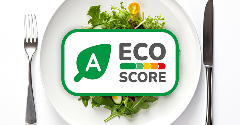News
Chobani coconut yogurt is now Fair Trade certified
16 Dec 2020Greek yogurt maker Chobani announced that its coconut yogurt blends are now made with Fair Trade Certified coconuts, saying that it is the first national brand to earn this certification for a coconut blend in the yogurt aisle. The Fair Trade Certified designation signifies that a product was made using production standards that promote sustainable livelihoods and safe working conditions, protection of the environment, and strong, transparent supply chains.
It has only been two years since Chobani’s coconut-based non-dairy yogurts appeared on supermarket shelves, but in that time the company obtained the rigorous Fair Trade Certification for its coconuts to offer customers not only an alternative dairy option in the yogurt aisle but also a sustainable choice – a consideration that is increasingly in demand for consumers.

Chobani has continually been a disruptor in the yogurt space. It became a market leader after reinvigorating the Greek yogurt category several years ago, and since then, it has continued to revolutionize the entire grocery segment. With sales of traditional Greek yogurt falling about $400 million since 2015 to about $3 billion in 2019, according to Nielsen data, Chobani has looked toward non-dairy options as well as kids yogurt and yogurt blends to maintain interest in the brand. And it has been successful. While yogurt sales have slumped for competitors like General Mills and Danone, Chobani has continued to report a healthy balance sheet.
This latest initiative is in response to questions about the sustainability of coconut products. When coconut became a popular dairy alternative several years ago, demand soared raising questions among manufacturers about potential shortages and driving prices up by as much as a third. Rapidly increasing demand for coconuts also caused concern regarding their unregulated production that had the potential to contribute to deforestation, exploitation and environmental impacts in certain areas. Despite the headwinds streaming against coconut production, the tropical fruit has remained an in-demand ingredient and prompted consumers to ask for sourcing transparency from manufacturers purchasing this product.
According to Fair Trade USA, 95% of coconuts are harvested by smallholders, who lack access to global markets on fair terms. In the Philippines, a major coconut-producing region, this means most coconuts are harvested by farmers who live on less than $1 a day. By Chobani earning a Fair Trade Certified seal, it offers consumers assurances that those farmers who are providing the company its coconuts are paid in a manner that is commensurate with responsible business and fair pay.
In the U.S. and Europe, earning such a seal will likely be beneficial to a company such as Chobani. A report released this summer from IRI and the NYU Stern Center for Sustainable Business found that products that are marketed as sustainable are driving sales growth. In the report, that between 2015 and 2019, sustainability-marketed products represented 16.1% of the total CPG market but were responsible for 54.7% of the overall growth.
Related news

UK Government overhauls childhood obesity strategy
21 Nov 2025
The UK Government has announced a new package of measures designed to reverse the nation’s childhood obesity epidemic following the release of statistics revealing the scale of the crisis.
Read more
How younger consumers are redefining ingredient choices and rejecting brand loyalty
18 Nov 2025
Gen Z and millennial consumers’ preferences for transparency, functionality, and purpose are “redefining the very nature of consumption itself”, says SPINS.
Read more
New UPF standard hoped to offer consumers ‘coherence and clarity’
10 Nov 2025
Ingredients companies are being urged to enter “a new era of partnership and innovation” following the launch of the industry’s first non-UPF verification scheme.
Read more
Ingredient quantities mislabelled on popular protein bars, independent tests show
5 Nov 2025
Some popular protein bars contain more fat, carbs, and/or sugars than claimed on their labels, independent nutrition testing reveals.
Read more
Does promoting protein content push up plant-based sales?
27 Oct 2025
Promoting the protein content of meat-free products is a more effective sales strategy than adding carbon labels, a study of UK bakery chain Greggs suggests.
Read more
Supplement shoppers seek storytelling and science-backed suppliers
17 Oct 2025
Supplement consumers want specific health benefits that focus on prevention and personalisation, according to data from HealthFocus International.
Read more
Food fraud risks rise as brands fight economic and environmental headwinds
10 Oct 2025
Climate change, geopolitics, regulations, and demand for sustainable products are pushing up food fraud and adulteration risks, warns a world-leading food fraud expert.
Read more
The growing appeal of nutrient-dense food claims
2 Oct 2025
Nutrient-dense claims are rising as consumers reject the “empty calories” of UPFs in favour of products that provide meaningful nutrition with every calorie, Mintel data shows.
Read more
What does MAHA mean for the US nutraceutical industry?
30 Sep 2025
Industry associations have expressed mixed reactions to new policy directions on health and nutrition under the Make America Health Again (MAHA) banner.
Read more
Eco-Score labels improve consumer identification of sustainable foods
22 Sep 2025
The presence of a front-of-pack Eco-Score label improves consumers' accuracy in identifying sustainable food products from 52% to 72%, a study suggests.
Read more